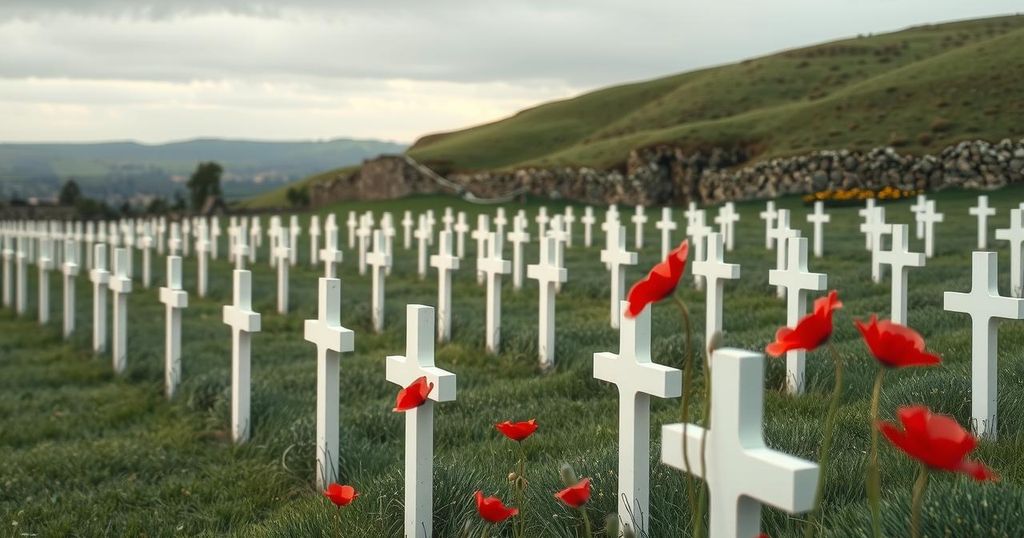During a recent session in the UK Parliament, Keir Starmer highlighted the sacrifices of 642 British soldiers who died in Iraq and Afghanistan, implicitly rebuking JD Vance’s prior comments. Starmer’s tribute emphasized bravery and duty, while new polling showed widespread public support for using frozen Russian assets to assist Ukraine. The PMQs session reflected important discussions on national security and the significance of parliamentary unity in foreign policy matters.
In recent discussions within the UK Parliament, Keir Starmer emphasized the significant sacrifice of British soldiers, stating that 642 Britons lost their lives in Iraq and Afghanistan. Starmer acknowledged the anniversary of the deaths of soldiers, reinforcing the importance of their bravery and commitment to their country. This pointed remark came as an implicit critique of JD Vance’s recent comments about Europe, although Starmer did not directly mention him.
Starmer highlighted the bravery of these individuals, stating, “These men fought and died for their country, our country. And across the wars in Afghanistan and Iraq, 642 individuals died fighting for Britain alongside our allies, many more were wounded.” He called on all Members of Parliament to honor the memory of these fallen soldiers. Additionally, Kemi Badenoch responded to criticisms of Vance, asserting that inciting social media hostility is unnecessary, reflecting a supportive stance towards Vance’s clarification regarding his previous remarks.
Polling data revealed that a significant majority of Britons back the utilization of frozen Russian assets to aid Ukraine. A survey noted that 58% of the populace supports this funding method, which aligns with recent government strategies despite cuts to aid budgets. Key statements from political leaders indicated a strong desire for a unified stance on issues concerning Ukraine and international relations.
At Prime Minister’s Questions (PMQs), Starmer addressed various pressing issues, asserting that fostering cooperation with allies is essential while navigating the complexities of foreign policy. He stressed the integrity and safety of the UK in any discussions related to military involvement in Ukraine. Furthermore, he affirmed his commitment to ensuring the UK does not engage in war without careful consideration of the consequences.
Despite a somewhat subdued PMQs session, notable interactions highlighted differing perspectives on national security and the importance of maintaining a strong parliamentary voice regarding international matters. Starmer reaffirmed the significance of protecting the fishing industry’s rights in future negotiations with the EU, demonstrating his approach to sustaining domestic economic interests amidst broader geopolitical discussions.
Concluding remarks from the PMQs underscored the gravity of military casualties and their remembrance, along with a commitment to addressing contemporary societal issues such as family court procedures. Starmer’s balanced approach seeks to bridge political divides while reinforcing the respect and remembrance owed to armed forces personnel in the UK.
In summary, Keir Starmer’s remarks during PMQs about the sacrifices of British soldiers serve as a poignant reminder of their service in Iraq and Afghanistan. His implicit critique of JD Vance underscores concerns regarding respect for British military contributions. Furthermore, the public’s overwhelming support for using frozen Russian assets to aid Ukraine indicates a strong sentiment for humanitarian assistance. The discussions around national security and the importance of parliamentary unity highlight the ongoing complexities in UK foreign policy, while Starmer’s reaffirmation of his values aims to foster cooperation and remembrance.
Original Source: www.theguardian.com




